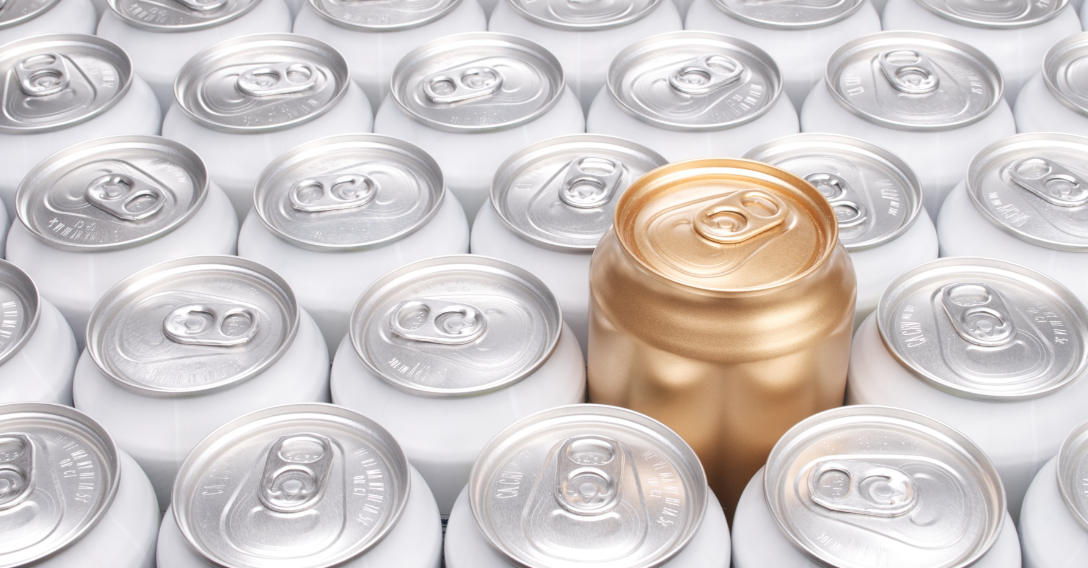Be Distinctive to Better Stand Out to Shoppers

What Hijacks Your Decisions?
It’s been another long day at work, and it’s only lunchtime.
You struggle through the afternoon, then you get a text from a group of friends. They are getting together at your favorite bar after work. You smile and text back that you’ll be there. As the day ends, you smile as you pack your stuff. Last time you went to the bar you discovered a new beer that has since become your favorite – Castle Danger Cream Ale.
You’re practically giddy at the prospect of enjoying your favorite brew with friends.

Fast forward to the bar. The waiter goes around the table, taking orders and your excitement builds further. Miller Lite, Fat Tire, Pinot Noir, Budweiser, Stella Artois, Blue Moon, Michelob Ultra, Castle Danger Cream Ale, Bud Light.
Then it’s your turn, so you order…a Sam Adams.
Wait, what just happened?!? It seems your brain hijacked your decision making.
The Science Behind How Our Brain Works
Believe it or not, the above example is the subject of psychologist and behavioral scientist research. Despite the “nerdy” bias towards academia, it turns out researchers love their beer as much as everybody else.
(Editors Note: If you conduct a Google search for “beer psychology experiment,” it returns over 8,600,000 results in just over 1/2 a second. Cheers!)

In 1960, Psychologists Howard Fromkin and C. R. Synder pointed out this typical inclination, suggesting that our desire for uniqueness is a “prevalent determinant of behavior.”
People have a psychological bias towards – and are attracted to – distinctive things. Our need for uniqueness influences our behavior. Beyond just your desires and preference, context matters, too.
Research has shown that if other people in a group order your preferred beer first, you will be less likely to order it. This is true even if that beer is something you order every other time and, even if you don’t like the other item as much.

Our brains are wired to novelty, and we are attracted to differences in our surroundings. In other words, you are likely to prefer variety for the sake of being distinct from others in your group.
What this Means for Marketing
Ideally, we’d share everything about our brand, but that’s not practical, given the interests of shoppers and the immense array of competing marketing messages. Too many messages about any brand become mere noise.
Take advantage of the fact that our brains use context to make sense of the world. We process information relative to our current context and past experiences.

What to Do About It
There are a few behavioral science and shopper marketing principles to consider as you design marketing creative to close the sale. Here are a few quick considerations to better design for the shopper mindset.
Bring the Benefit to Life.
Your brand has a reason for being and should offer shoppers a compelling reason to purchase. Highlight the real consumer benefit(s), not features. Understanding and overcoming shopper doubt is critical to close the sale.
Ensure you Visualize the Benefit for the Shopper.
Our brains prefer visuals as they are processed faster than words. This is a mental processing shortcut, and less work means more positive associations.
Objectively Assess Your Messaging.
You’ve put in a lot of work to build your brand. And you’re about to spend a lot of money on a marketing campaign. Your message must be clear and easy to understand. The best way to ensure success? Seek an outside assessment to ensure your message is optimized for the shopper mindset.
Cheers!
Learn More
A better understanding of “shopper science” – and adopting fundamental principles – can help marketers better drive sales and improve ROI.
SellCheck seeks to help marketers do their best by providing clarity and confidence through the discipline of creative effectiveness. Our “Designing for the Shopper Mindset” Series was created to help you improve your business by highlighting key design principles and what to do about it to be more effective.
SellCheck is a marketing research platform designed to streamline the creative process, produce better marketing, and boost sales. Whether creating digital ads, in-store signage, or packaging, science-based design principles can improve your creative effectiveness. Why is this important? Ads optimized for selling outperform those that are not by 30% or more.